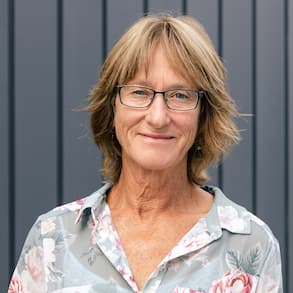Egg shortage over, for now

Jill and Paul Ewing now produce all their eggs free range or in barns. Photo: Anne Hardie.
The shortage of eggs is over, with the national hen population increasing by half a million hens this year.
Don’t expect prices to come down though, as Egg Producers Federation of New Zealand executive director Michael Brooks says the cost of producing an egg has also increased dramatically.
The Government gave the industry 10 years to phase out battery cages and egg producers have gone through massive change in their transition to free range, barn or colony. The new systems are more expensive to run and Michael says the cost of feeding hens has hiked.
For Ewing Poultry, the past few years has meant transitioning from their caged system in Hope where they had 87,000 hens, to Quail Valley where they now have 65,000 hens, with the majority free-range and 20,000 in barns.
Paul and Jill Ewing say the transition has been a major project, especially with Covid-19 adding stumbling blocks to get the buildings and systems completed, plus skyrocketing prices for the build.
Grain prices have increased “massively” and the new systems are far more labour intensive which make it a lot more expensive to produce an egg, Paul says.
Though higher production costs have increased the price of eggs, Jill says eggs are still good value for the protein they contain compared with other products.The Ewings say egg production is “quite a different business” now and a far cry from the family business begun in Hope by Paul’s parents Lloyd and Gwen Ewing 44 years ago.
Today, the Ewings employ 32 full-time staff which includes the Hope site where they continue to operate a shop to sell eggs direct to the public.
Meanwhile, Michael says there has been a compaction of the industry as some of the smaller farm operations dropped out of production. Despite that, hen numbers have climbed from 3.4 million throughout the country earlier this year to 3.9 million, which means “a lot more eggs on a daily basis”.
“That’s why you can see more eggs back on the shelves.”
A plentiful supply of eggs on the supermarket shelf may be short lived though, Michael warns.
Many egg producers transitioned from battery cages to colony cages which give hens room to nest, perch, scratch and stretch.
Then supermarkets decided to ban colony-cage eggs as well, with the ban being imposed between now and 2027 within the different supermarket chains.
Supermarkets sell more than 55 percent of eggs produced and Michael says a third of the flock’s eggs may not be available in supermarkets once the bans are in place.
He says 33 per cent of the national flock is now farmed in colony cages and individual farmers have spent about $1 million to transition from battery cages to colony cages.
Colony-cage farmers will have to find other markets outside supermarkets and he says some of the older farmers will possibly retire rather than spend money revamping the business again.
“Supermarkets should not be making that decision (on colony cages). They should be letting customers make that decision.
“So, potentially, there is another egg shortage coming.”
